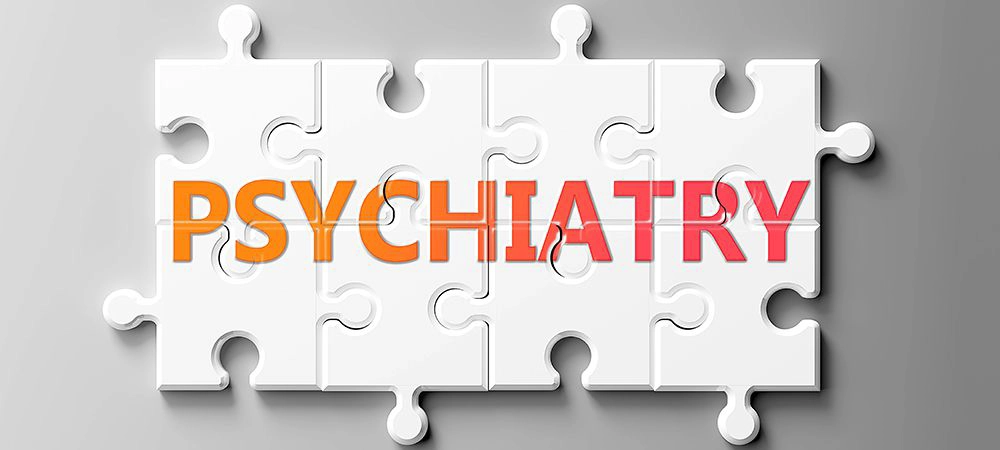As our understanding of addiction has grown over the last several decades, addiction treatment methods have evolved substantially. We have moved from a one-size-fits-all model where the same treatments were applied to everyone, to a more holistic approach that takes into consideration the differences between people and their addiction journeys.
One of the fields that has developed in the changing landscape of addiction treatment is substance abuse psychiatry. One of the key features of this method of treatment is the recognition that substance use disorders frequently coexist with mental illnesses, and the dual treatment of both.
What Is A Substance Abuse Psychiatrist?
In order to properly understand the field of substance abuse psychiatry, let’s first explore what a psychiatrist is. Many people think a psychiatrist is simply a psychologist who can prescribe medication, but there is more to it than that.
What Is A Psychiatrist?
A psychiatrist is a medical doctor who specializes in the diagnosis and treatment of psychological, emotional, and behavioural conditions. The combination of medical and psychology training puts psychiatrists in the position of being able to assess the physical impacts of mental illnesses, as well as the psychological impacts of physical conditions.
What Is The Difference Between A Psychologist And A Psychiatrist?
A psychologist is a mental health professional who studies the science of thoughts, feelings, and behaviours, and uses this knowledge to help clients understand and change these aspects of themselves for the better. Talk therapy is the most common form of treatment used by psychiatrists. This can be conducted one-on-one, in a group of people who face similar challenges, or as a way of helping families who are impacted by singular issue.
A psychiatrist is qualified to treat conditions that have both a physical and mental health aspect, and mental illnesses for which medical treatment is an essential component. Examples of this include schizophrenia and some instances of depression, anxiety, and bipolar disorder.
Substance Abuse Psychiatry
Addiction is a condition that impacts both the body and the mind. Rehab programs are, quite rightly, focused on treating the root causes of the addiction, which are frequently related to stress, trauma, depression, anxiety, and other mental health concerns. If you leave rehab without having looked at these things, you could face a high risk of relapse. The problems that were there before rehab will still be there when you get out – the whole point of rehab is to teach you healthy ways of dealing with those challenges. More often than not, that involves developing an understanding of how your mental health challenges play into your addiction.
However, while all of this is going on, you also have to take care of your physical health. If you are emerging from a period of active addiction, your body may be significantly weakened. Prolonged regular use of many substances can cause various physical issues, and the lifestyle followed by many people with addictions can take a toll on your body.
A substance abuse psychiatrist can help you balance your physical and mental health needs as you go through your addiction treatment program. Specific tasks include the following:
- Evaluation of your medical history, including your substance abuse history and any mental illnesses you have been diagnosed with
- Medical supervision during withdrawal to ensure that symptoms are safely managed as they arise
- Ordering and interpretation of laboratory tests, such as bloodwork and imaging, for diagnostic and monitoring purposes
- Diagnosis of psychiatric diseases, like schizophrenia, bipolar disorder, anorexia nervosa, personality disorders, and more
- Prescription of medication and monitoring of its usage, effectiveness and side effects
- Assessment and monitoring of a patient’s ability to perform daily living activities
- Use of a variety of addiction treatment methods, including talk therapy
- Consultation and referral to other professionals, such as a psychologist, neurologist, social worker, occupational therapist, and more
Who Can Benefit From Substance Abuse Psychiatry?
Almost anyone with a substance use disorder can benefit from the services of a substance abuse psychiatrist. Whether or not you are currently participating in an inpatient or outpatient rehab program, a substance abuse psychiatrist can help you in circumstances such as the following:
- You have a mental illness that predates the addiction, such as depression, anxiety or post-traumatic stress disorder
- You have a mental illness that results from the addiction
- You are finding it difficult to stop using the substance, or you experience cravings after you have completed rehab
- You suffer from an eating disorder, like anorexia nervosa or bulimia
- You suffer from an impulse control disorder, like obsessive-compulsive disorder (OCD) or kleptomania
- You are experiencing thoughts or suicide or self-harm
- You have a sleep disorder, like insomnia or night terrors
- You are a person with a painkiller addiction who needs to find alternative methods of pain relief
How Does Substance Abuse Psychiatry Fit Into Addiction Treatment?
When you enter a rehab program, you will have a team of people taking care of you. This may include a primary care physician, a substance abuse psychiatrist, a nutritionist, a clinical psychologist, a social worker, a family therapist, and any number of other professionals. The goal is to create and execute a customized holistic addiction treatment plan that is created just for you, with consideration for your physical, mental, emotional, social, spiritual and cultural needs.
Your team will collaborate with one another – and with you – to create your addiction treatment program, monitor your progress throughout treatment, and make adjustments as needed.
Getting Help For A Substance Abuse Disorder
At Addiction Rehab Toronto, we don’t treat addictions, we treat people. We understand that addiction is deeply rooted in context, and we will help you explore the underlying issues so you can learn healthier ways of dealing with them in the real world. Our addiction treatment programs are customized for each individual, because everyone has their own unique addiction story. From detox to aftercare, our compassionate staff will guide you gently through your recovery, so that you can enjoy a happier, more productive life, free from the stress of substance abuse. Call us today for an assessment. We will gladly answer any questions you may have.








